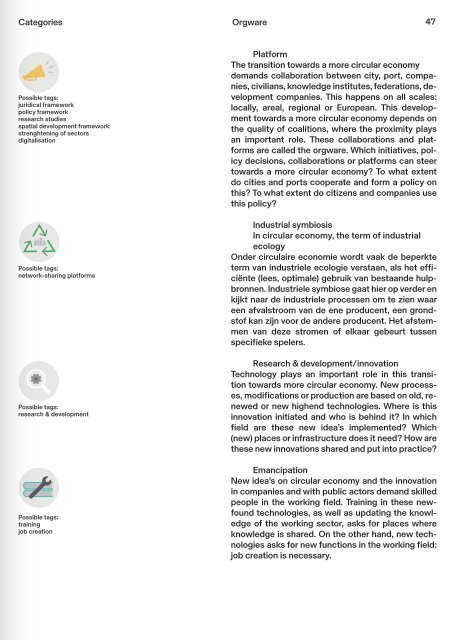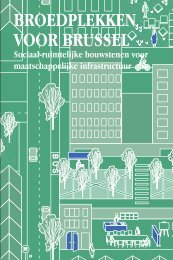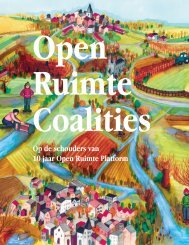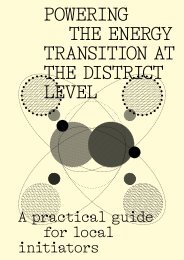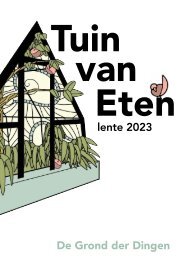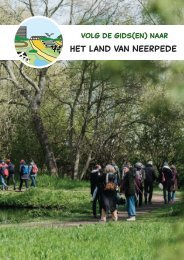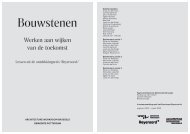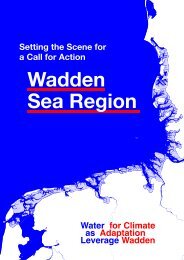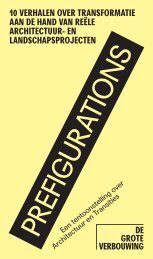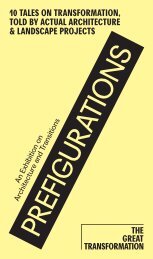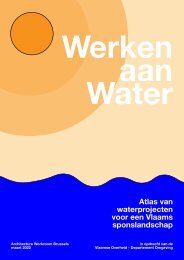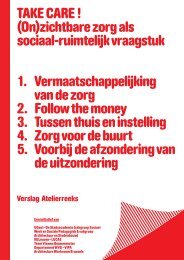Circular City Ports - Workbook
You also want an ePaper? Increase the reach of your titles
YUMPU automatically turns print PDFs into web optimized ePapers that Google loves.
Categories<br />
Orgware<br />
47<br />
Possible tags:<br />
juridical framework<br />
policy framework<br />
research studies<br />
spatial development framework<br />
strenghtening of sectors<br />
digitalisation<br />
Possible tags:<br />
network-sharing platforms<br />
Possible tags:<br />
research & development<br />
Possible tags:<br />
training<br />
job creation<br />
Platform<br />
The transition towards a more circular economy<br />
demands collaboration between city, port, companies,<br />
civilians, knowledge institutes, federations, development<br />
companies. This happens on all scales:<br />
locally, areal, regional or European. This development<br />
towards a more circular economy depends on<br />
the quality of coalitions, where the proximity plays<br />
an important role. These collaborations and platforms<br />
are called the orgware. Which initiatives, policy<br />
decisions, collaborations or platforms can steer<br />
towards a more circular economy? To what extent<br />
do cities and ports cooperate and form a policy on<br />
this? To what extent do citizens and companies use<br />
this policy?<br />
Industrial symbiosis<br />
In circular economy, the term of industrial<br />
ecology<br />
Onder circulaire economie wordt vaak de beperkte<br />
term van industriele ecologie verstaan, als het efficiënte<br />
(lees, optimale) gebruik van bestaande hulpbronnen.<br />
Industriele symbiose gaat hier op verder en<br />
kijkt naar de industriele processen om te zien waar<br />
een afvalstroom van de ene producent, een grondstof<br />
kan zijn voor de andere producent. Het afstemmen<br />
van deze stromen of elkaar gebeurt tussen<br />
specifieke spelers.<br />
Research & development/innovation<br />
Technology plays an important role in this transition<br />
towards more circular economy. New processes,<br />
modifications or production are based on old, renewed<br />
or new highend technologies. Where is this<br />
innovation initiated and who is behind it? In which<br />
field are these new idea’s implemented? Which<br />
(new) places or infrastructure does it need? How are<br />
these new innovations shared and put into practice?<br />
Emancipation<br />
New idea’s on circular economy and the innovation<br />
in companies and with public actors demand skilled<br />
people in the working field. Training in these newfound<br />
technologies, as well as updating the knowledge<br />
of the working sector, asks for places where<br />
knowledge is shared. On the other hand, new technologies<br />
asks for new functions in the working field:<br />
job creation is necessary.


